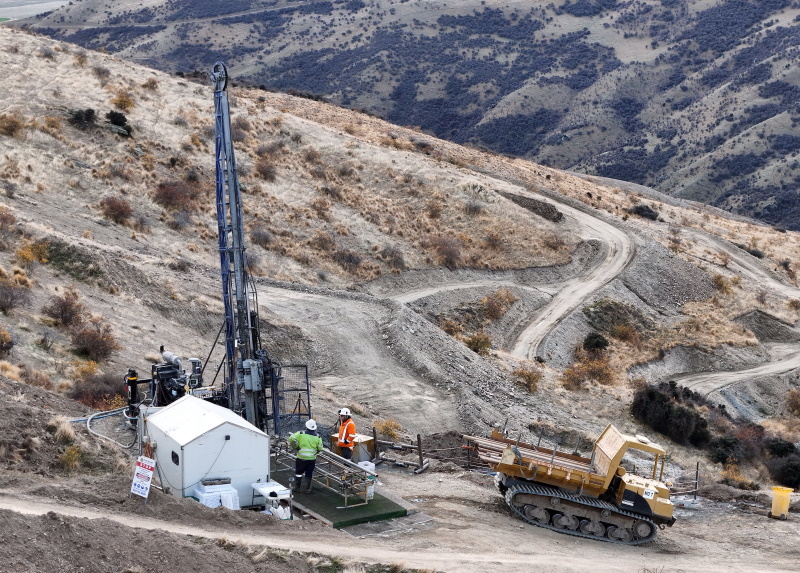Top Stories
Green Party Vows to Cancel Otago Mining Projects If Elected

The Green Party has announced plans to revoke consents for coal, hardrock gold, and seabed mining projects, including two in the Otago region, if it gains power in the upcoming election. This pledge indicates a significant shift in the party’s approach to environmental protections and mining regulations.
Co-leader Marama Davidson stated, “Today, we are putting the seabed mining, hardrock gold mining, and coal mining industries—and their investors—on notice. Your fast-track consents are not safe and they are not secure.” The Green Party’s commitment to revoking these consents highlights their ongoing concerns regarding the impact of mining activities on the environment and local communities.
The party has been vocal about its intentions since December 2024, when the fast-track bill for mining consents passed its third reading. At that time, the Greens expressed their commitment to revoking consents that they believe “short-cut our democracy, sidestep environmental protections, and degrade te taiao,” the Māori term for the natural world.
Seven specific projects have been named by the Greens, signaling their intention to revoke consents or permits. These projects include the Taranaki VTM project by Trans Tasman Resources, which aims to extract up to 50 million tonnes of seabed material annually in the South Taranaki Bight, and the Waihi North project by Oceana Gold, which seeks to expand gold and silver mining operations in the Waihi area.
In addition to these two, five other projects have been identified for potential revocation of consents. These are the Macraes Phase Four in East Otago, the Bendigo-Ophir Gold Project in Central Otago, the Buller Plateaux Continuation on the West Coast, the Rotowaro Mine Continuation in Waikato, and the Bream Bay Sand Extraction Project in Northland.
The Green Party emphasizes that while these projects have been singled out, any new fast-track applications that fall under the coal, hardrock gold, or seabed mining categories would also be subject to their revocation stance.
Currently, the government is revising the fast-track legislation, with plans to finalize amendments by the end of this year. This legislative process could significantly affect the future of mining in New Zealand, as the Green Party continues to advocate for stricter regulations and heightened environmental protections.
As the political landscape evolves ahead of the election, the Green Party’s firm stance on mining projects may resonate with voters concerned about environmental sustainability and the long-term impact of resource extraction on local ecosystems.
-

 World4 months ago
World4 months agoTest Your Knowledge: Take the Herald’s Afternoon Quiz Today
-

 Sports4 months ago
Sports4 months agoPM Faces Backlash from Fans During Netball Trophy Ceremony
-

 Lifestyle4 months ago
Lifestyle4 months agoDunedin Designers Win Top Award at Hokonui Fashion Event
-

 Sports4 months ago
Sports4 months agoLiam Lawson Launches New Era for Racing Bulls with Strong Start
-

 Lifestyle4 months ago
Lifestyle4 months agoDisney Fan Reveals Dress Code Tips for Park Visitors
-

 Health4 months ago
Health4 months agoWalking Faster Offers Major Health Benefits for Older Adults
-

 World4 months ago
World4 months agoCoalition Forms to Preserve Māori Wards in Hawke’s Bay
-

 Entertainment4 months ago
Entertainment4 months agoExperience the Excitement of ‘Chief of War’ in Oʻahu
-

 Politics4 months ago
Politics4 months agoScots Rally with Humor and Music to Protest Trump’s Visit
-

 Top Stories4 months ago
Top Stories4 months agoUK and India Finalize Trade Deal to Boost Economic Ties
-

 World4 months ago
World4 months agoHuntly Begins Water Pipe Flushing to Resolve Brown Water Issue
-

 Science4 months ago
Science4 months agoNew Interactive Map Reveals Wairarapa Valley’s Geological Secrets









